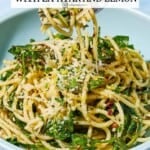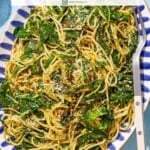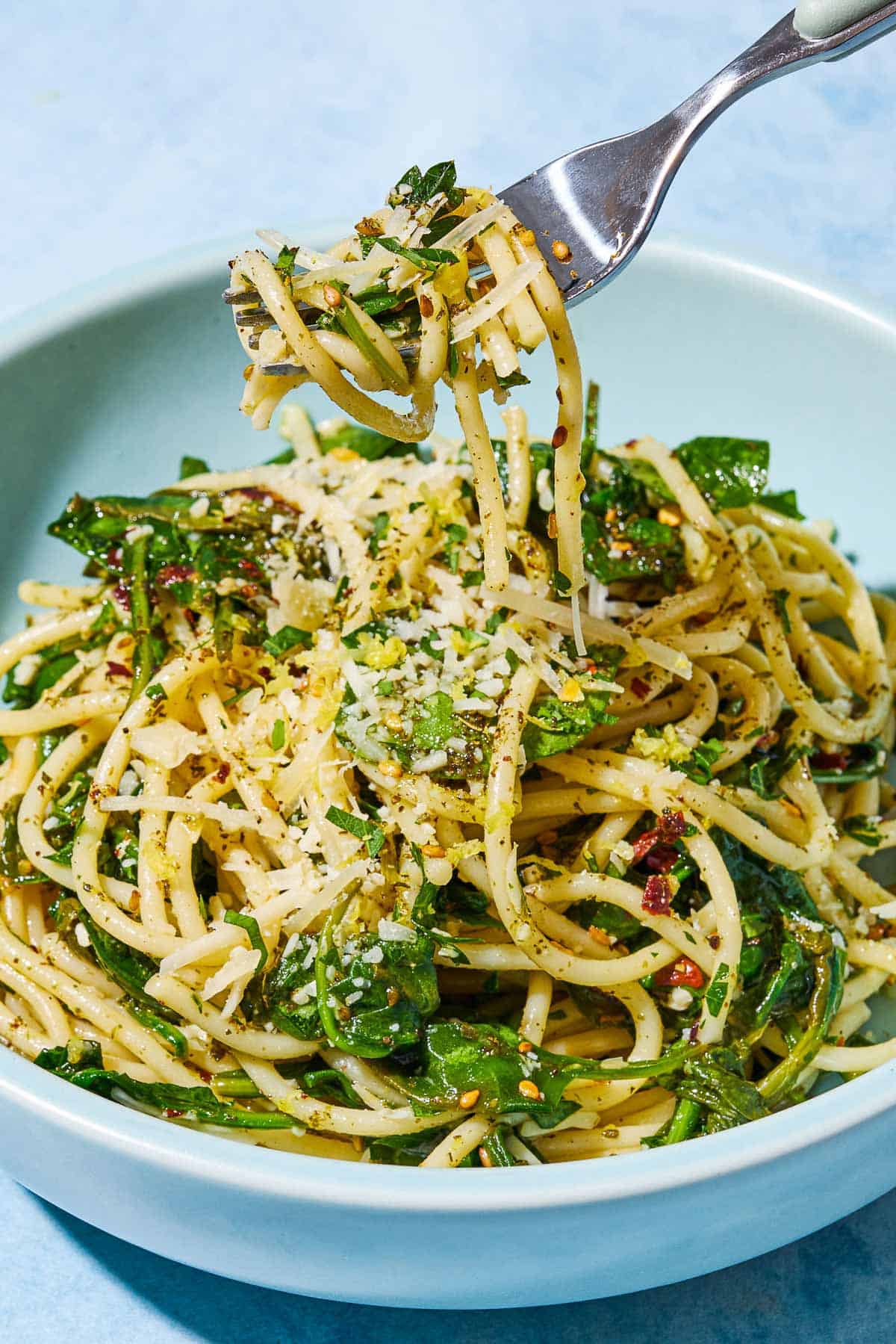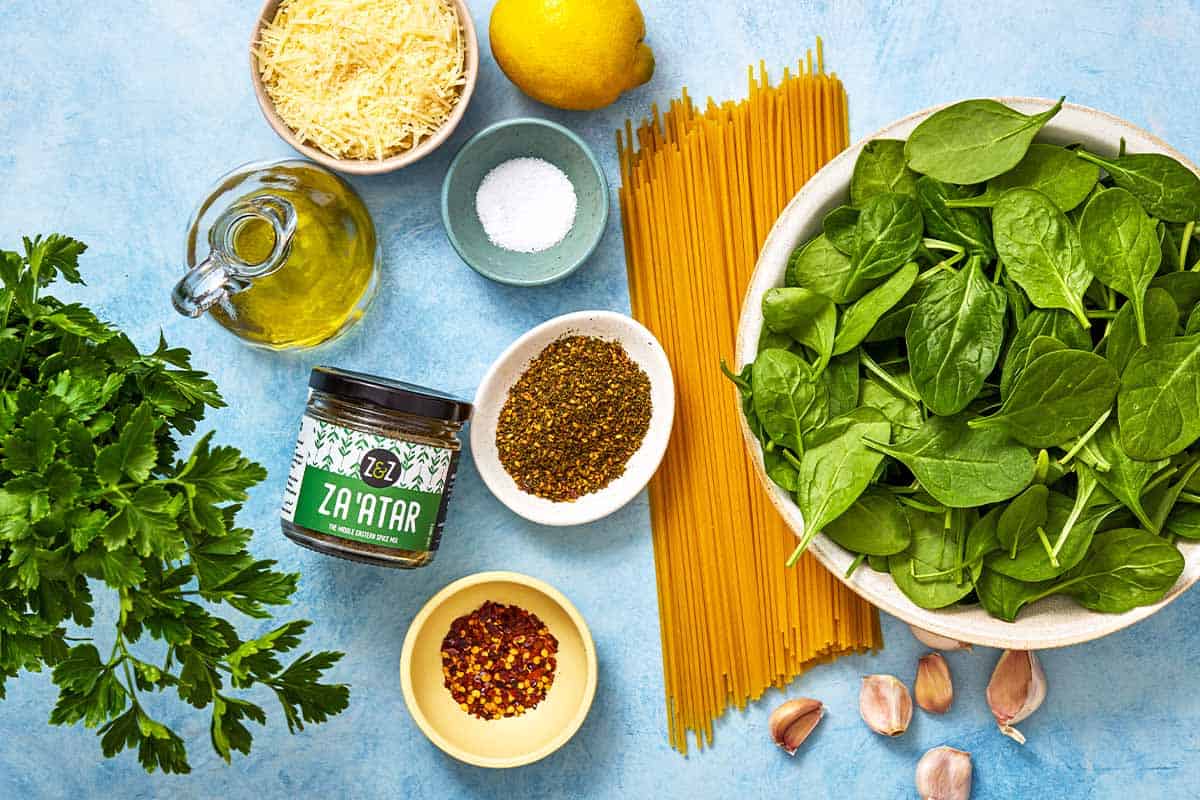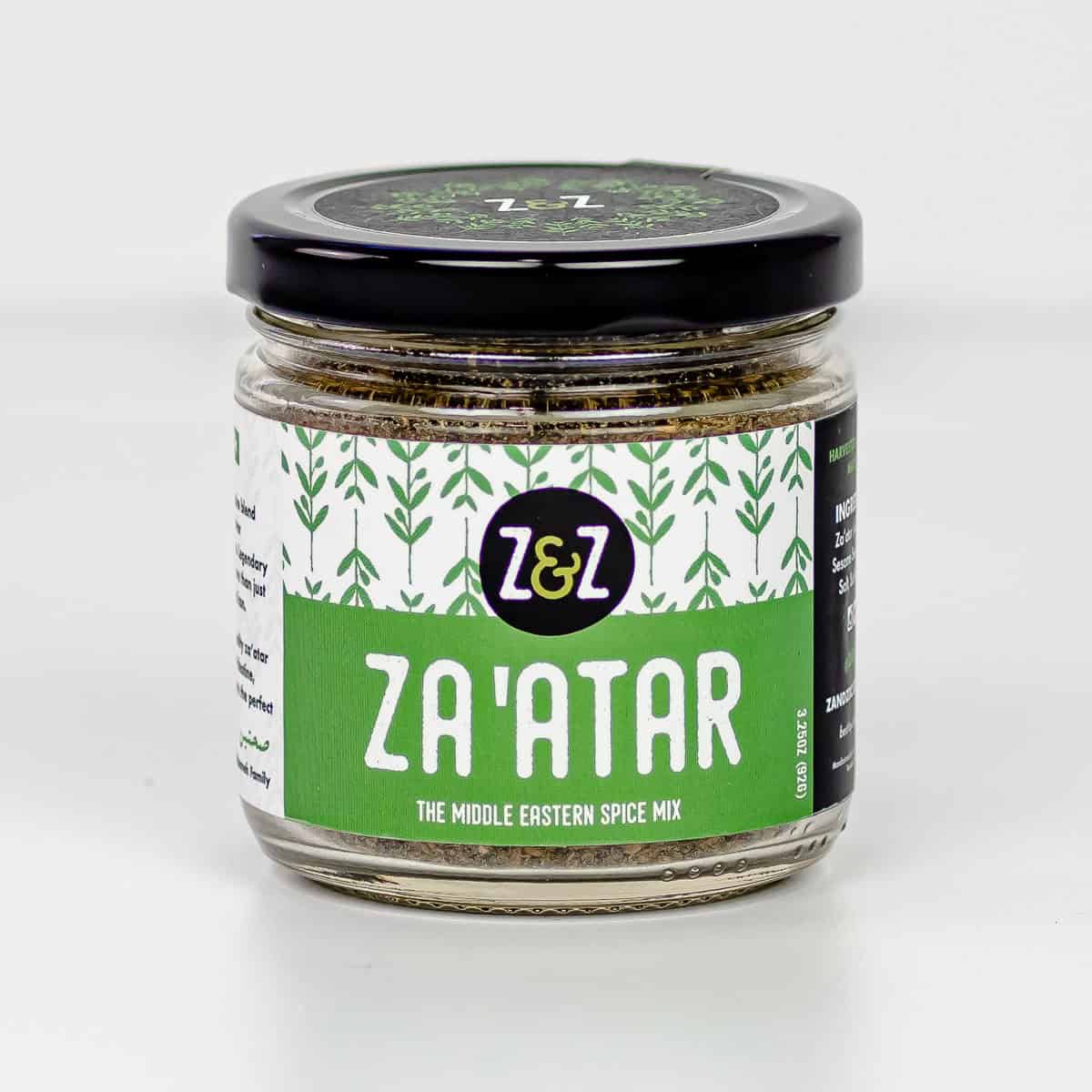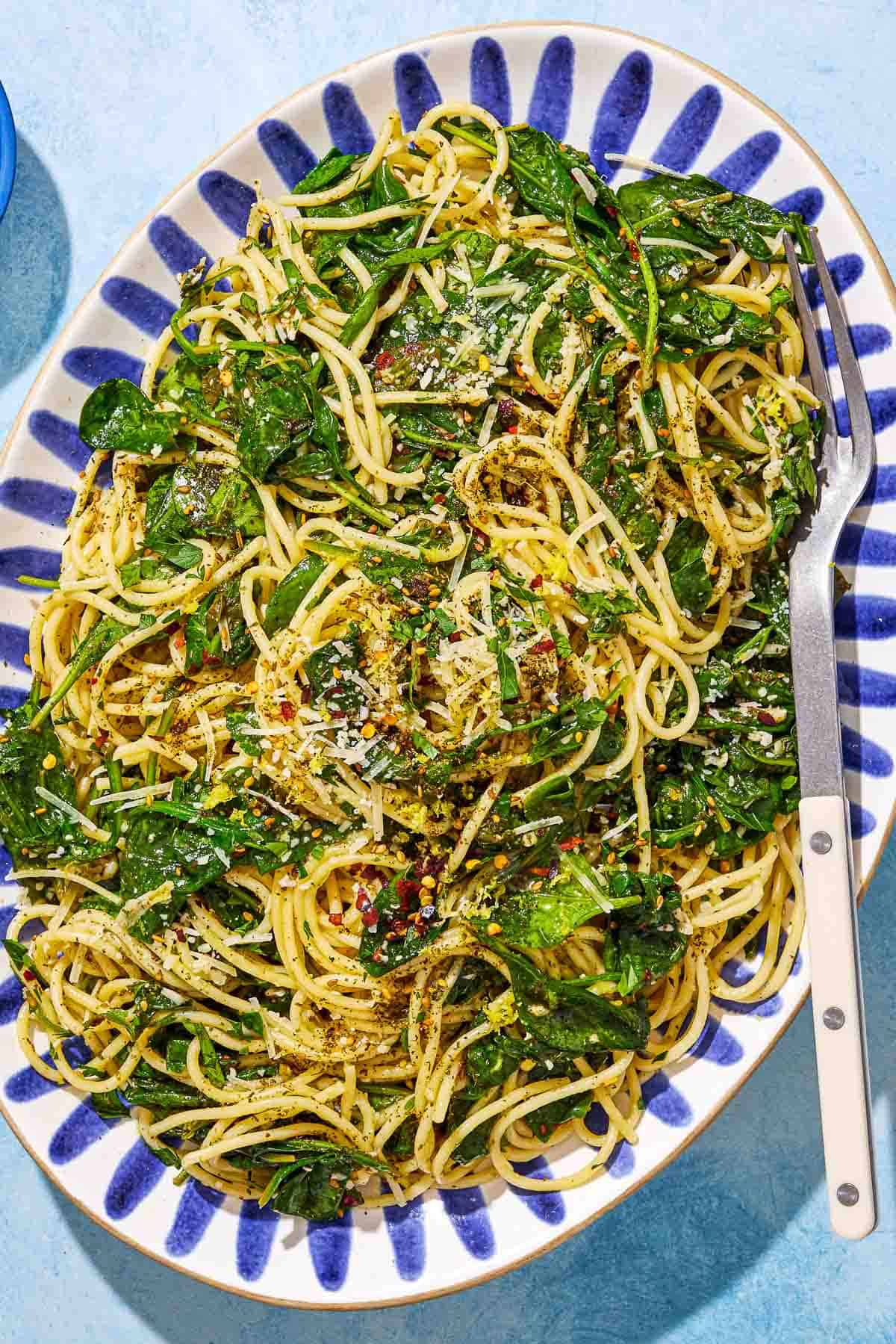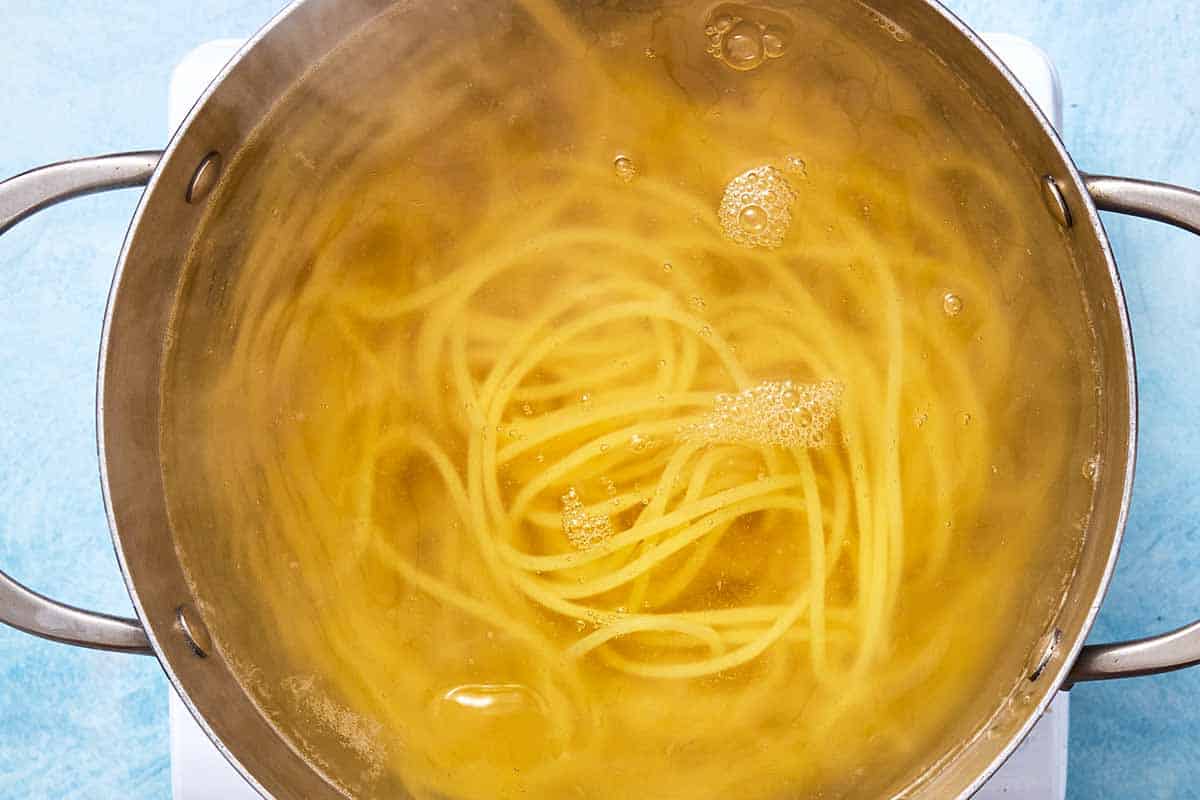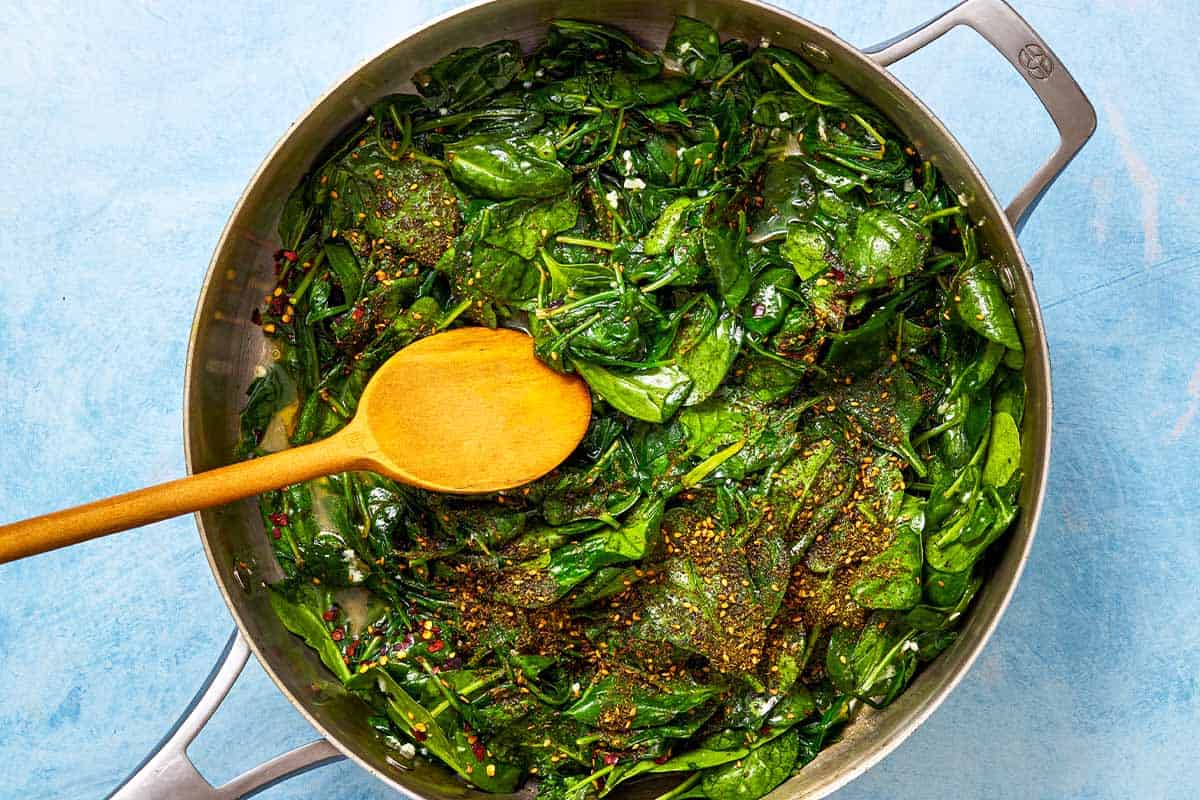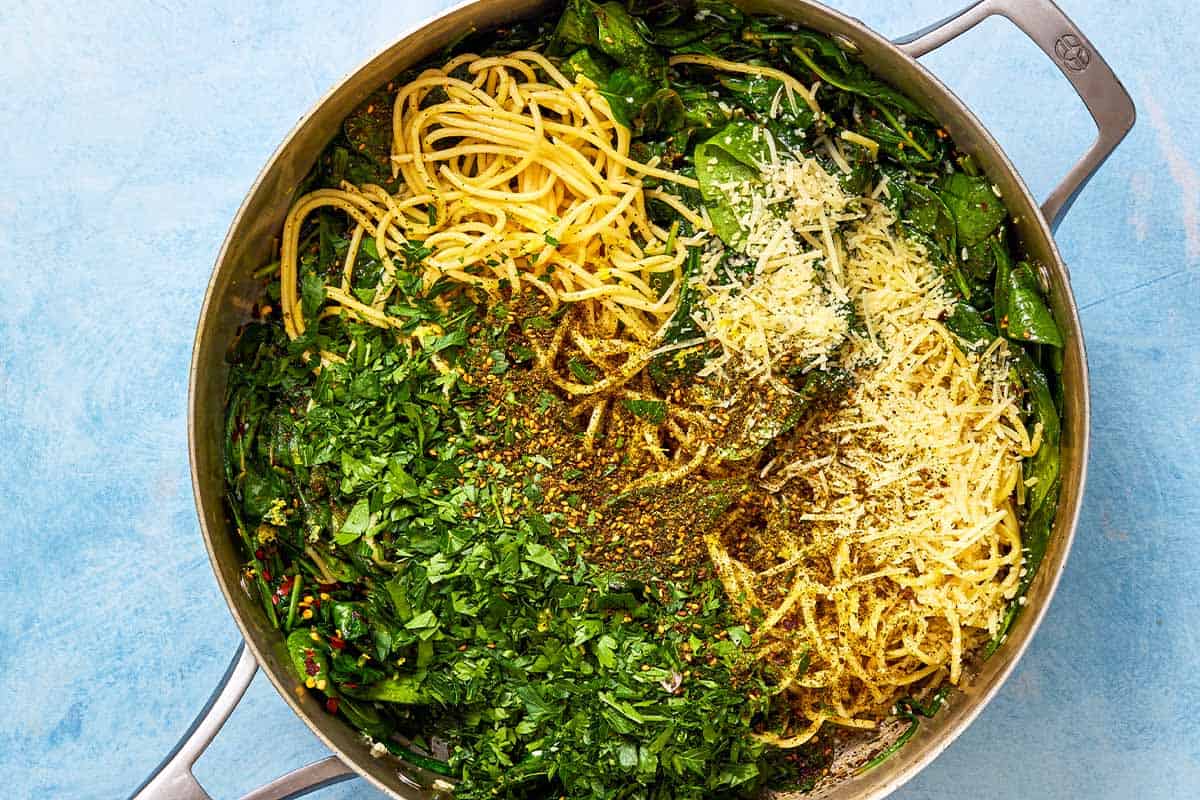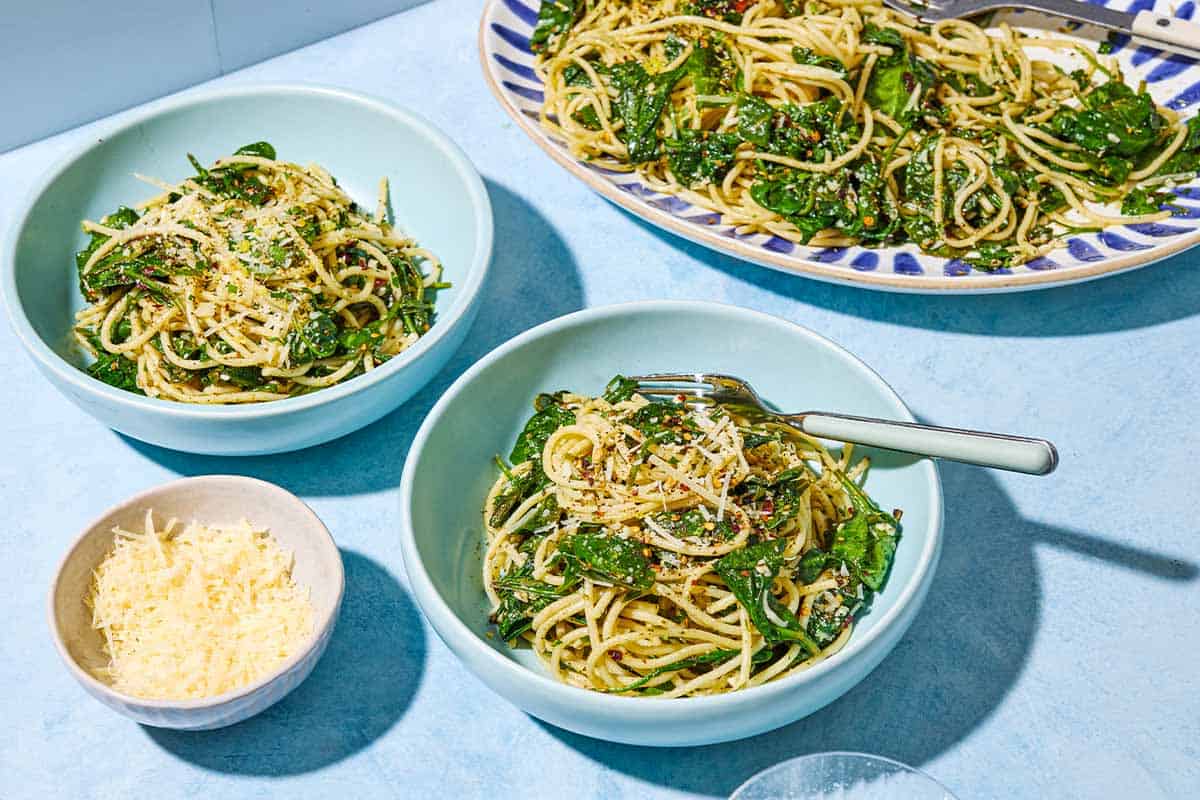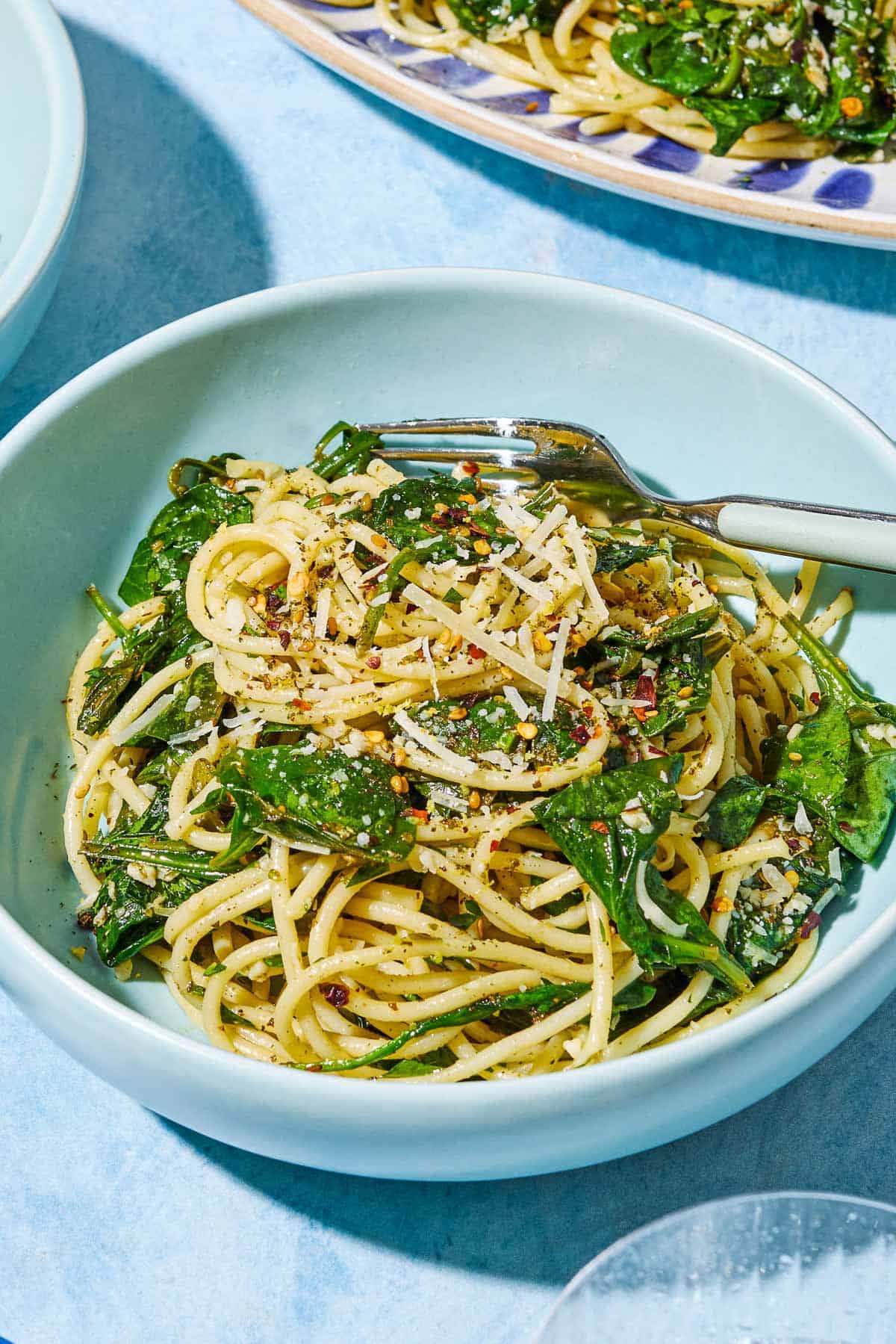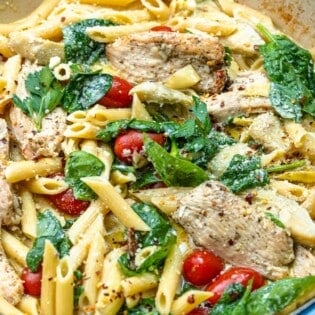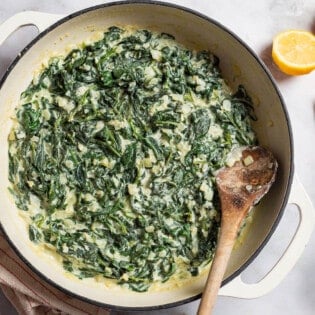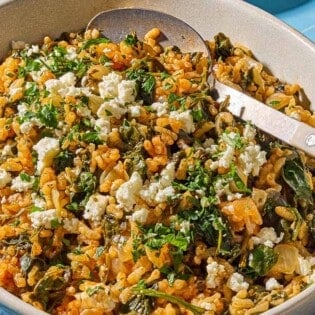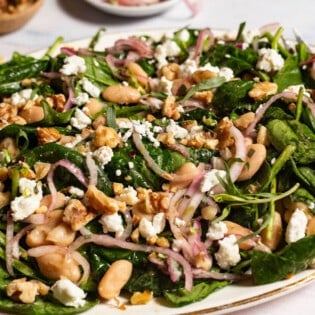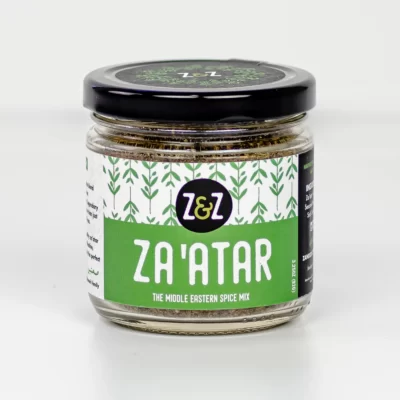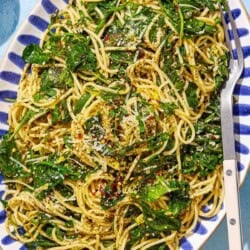This spinach pasta recipe takes a page from Nonna’s book but with my own Middle Eastern twist. Oodles of nutrient and fiber-rich baby spinach (Yes, a good 12 ounces!) and spaghetti are tossed in a garlicky olive oil sauce. Za’atar, a spice blend that combines aromatic wild thyme with tart sumac and nutty sesame seeds adds a surprising—and fully addictive—layer of flavor. Shredded parmesan cheese complements the nutty flavor and adds an umami boost. It’s bright, earthy, slightly nutty, and completely delicious! While many pasta and spinach recipes use a lot of butter or heavy cream-based sauces, you’ll find that good olive oil, coupled with a bit of starchy cooking water, makes a silky sauce to coat the noodles—no heavy cream necessary. It is lighter but just as comforting. And, yes, you can use whole-grain pasta for an even more Mediterranean Diet-friendly option!
Spinach Pasta Ingredients
This spinach pasta is made with a handful of ingredients, many of which may already be in your pantry. And, if not, they’re well worth seeking out. You’ll need:
Pasta: I used spaghetti, but any long, pasta like angel hair or bucatini would work well. Kosher salt enhances the flavor. Extra virgin olive oil is a major component of the sauce, so a high-quality extra virgin variety is essential (I love the peppery notes of the Spanish Hojiblanca from our shop with this recipe.) Garlic adds a sweet and savory depth of flavor. I call for 5 to 6 minced cloves, which is worth doing fresh if you can–see our guide on how to mince garlic for tips. I would not recommend grating the garlic as it’s more likely to burn. Baby spinach is sweet and tender, but standard spinach will work too. Just trim off the larger ends and cut them into large pieces. Red pepper flakes add a good kick. For a milder version, try the Aleppo pepper from our shop. Za’atar is the secret ingredient in this recipe (more info below). Parmesan cheese adds a delicious umami, salty quality. Blocks of parmesan tend to be much more flavorful than the pre-grated kind, so try to freshly grate it if you can. Fresh lemon zest and juice lift the savory flavors. Parsley leaves add fresh, peppery flavor, and are a good complement to the za’atar. Other tender green herbs like dill or cilantro could work in their place, but I would not substitute with dried ones.
Ingredient Spotlight
Za’atar is a Middle Eastern spice blend that’s savory, tart, nutty, and aromatic. It’s the first jar that consistently runs out in my pantry! No surprise there, though, it’s incredibly useful: Sprinkle it on simple everyday things like popcorn, eggs, sheet pan chicken. Or use it to dunk bread along with really delicious olive oil. Or use it to make traditional dishes like Manaqish, a Middle Eastern flatbread. The exact blend varies depending on the region, family, and spice seller. But generally, it’s made with dried wild thyme, sesame seeds, sumac, and sometimes other various dried herbs like dill or marjoram.
READ MORE: What Is Za’atar And How To Use It (BEST Za’atar Recipes) TRY IT: Za’atar isn’t the easiest spice blend to find, which is why we offer my favorite Za’atar at our shop. BEST SUBSTITUTE: There’s no great substitute that perfectly matches the complex flavor and texture of za’atar, but for this specific recipe Italian Seasoning would work (I have a homemade Italian Seasoning recipe if your spice drawer is nicely stocked). You could even top with pine nuts to bring a nutty crunch.
How to Make Spinach Pasta
This spinach pasta recipe boasts big flavor and it’s on your table in 30 minutes or less. Here are the steps:
Cook the pasta. Bring a large pot of water to a boil and season well with kosher salt. Once the water is ready, add the pasta and cook to al dente according to package instructions (about 8 to 9 minutes). Next, reserve 2 cups of pasta water, then drain. Soften the garlic. In a large pan, warm the olive oil over medium heat. Once the oil begins to shimmer, add the garlic to the pan and stir until fragrant, about 1 minute (you want some color but do not burn the garlic). Wilt the spinach. To the pan, add the lemon juice and a splash of the pasta cooking water (about 1/2 cup). Add the spinach in batches, stirring until wilted and season with a pinch of salt as you go. Once all of the spinach is fully wilted, about 5 minutes, stir in the crushed red pepper flakes and 1 tablespoon of za’atar. Combine the pasta and sauce. Add the pasta to the pan with the spinach and toss everything to combine. Once you have mixed the pasta and spinach, add the remaining za’atar, parmesan, lemon zest, and parsley. Toss until everything is well combined. If the pasta looks a bit dry, add a little more olive oil or a splash of the pasta cooking water and stir until it’s glossy. Serve. Finally, divide the pasta into bowls, and serve with more cheese and za’atar on the side. (I know I always add more of both to my bowl.)
What to Serve with Spinach Pasta
I recommend serving this spinach spaghetti with extra parmesan cheese and za’atar on the side. You’ve covered your greens intake already, but I do love a fresh salad alongside. Something crunchy and colorful to complement the silky green pasta is especially welcome, Bell Pepper Salad with Mini Sweet Peppers.
How to Store Leftovers
Store leftover pasta in an airtight container in the fridge for up to 3 days. Reheat quickly on the stovetop over medium heat, adding more olive oil or a splash of water as necessary to prevent it from drying out. Browse all Mediterranean recipes. Visit Our Shop.
Chicken Pasta with Spinach, Tomatoes, and Artichokes
Creamed Spinach
Spanakorizo (Greek Spinach Rice)
Wilted Spinach Salad
